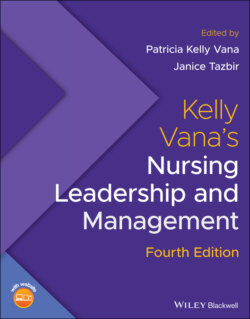Читать книгу Kelly Vana's Nursing Leadership and Management - Группа авторов - Страница 178
Case Study 3.3
ОглавлениеAnne Larson Zimmerman, born in 1914, graduated with her diploma in nursing in 1935. Later she remembered a nursing school instructor whom she had greatly admired, who told Zimmerman that she, “had been promised when she came that if her work was satisfactory after the first year, she would be given a raise in salary,” and then the superintendent said to her, “Well, we're doing so much charity and we are so poor that we really won't be able to give you a raise,” and she said, “Well, but sister, I am doing your charity, not you … and I don't think I should subsidize what you call your charity” (Fitzpatrick, 1985, p. 2). Zimmerman's nursing school instructor's words remained with her as she worked as a single mother in Montana, California, and finally in Illinois. As the Executive Director of the Illinois Nurses Association, Zimmerman encouraged nurses to stand up for their rights. At Chicago's Cook County Hospital, where the conditions for nurses and patients were awful, a colleague remembered that Zimmerman “was excellent. There on every picket line. Always there. She would never ask you to do something she had not done herself” (Stafford, 2016). As President of the ANA from 1976 to 1978, Zimmerman advocated for economic welfare for nurses, nationalized health care, and passage of the equal rights amendment. Not surprisingly, Zimmerman successfully argued that the ANA president deserved a salary.
With some insight into nursing history, what do you think about nurses unionizing today?
Zimmerman remembered a former nursing instructor who would not accept the superintendent's denial of her raise. What is your opinion of the nursing instructor's argument that she should not have to subsidize “what you call your charity”? Figure 3.4
FIGURE 3.4 Anne Zimmerman.
Source: Anne Zimmerman Collection, Midwest Nursing History Research Center, University of Illinois at Chicago, College of Nursing.
